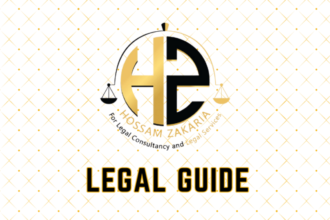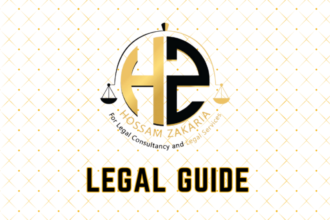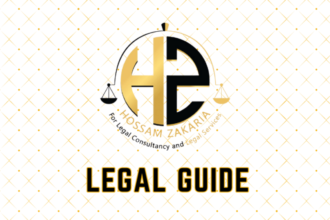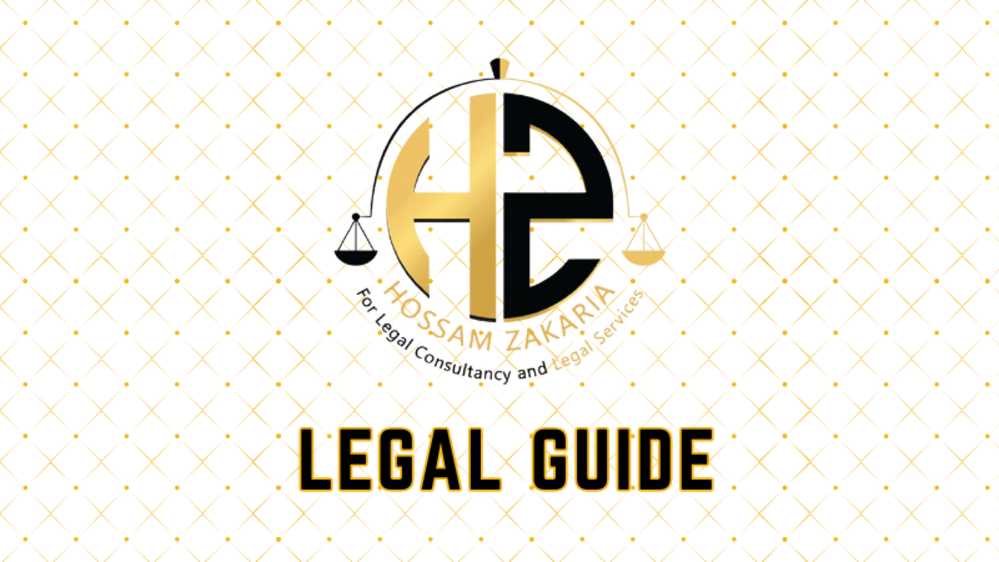Introduction: Navigating Agency Agreements and Distribution Contracts in the UAE
The United Arab Emirates (UAE) has consistently reinforced its status as a leading commercial hub, driven by a dynamic legal landscape that evolves to meet global standards of business integrity, investor protection, and economic diversification. At the nucleus of many commercial operations in the UAE are agency agreements and distribution contracts, which function as critical tools for both local and international businesses seeking market access, risk minimization, and long-term partnerships.
In recent years—and accelerated by the introduction of Federal Law No. 3 of 2022 (the new Commercial Agencies Law), as well as implementing Cabinet Resolutions and ministerial guidelines—key aspects of agency and distribution relationships have been fundamentally redefined. These updates, which include major amendments taking effect from 2023 and into 2025, affect parties across industries: manufacturers, importers, retailers, franchisors, and commercial agents.
Understanding the substance and ramifications of these legal changes is not only prudent, but essential for commercial success and legal compliance. This article provides a strategic, consultancy-grade exploration of the current law, the main legal provisions, and the practical consequences for businesses operating in or with the UAE. Our analysis draws exclusively from authoritative UAE legal sources, including the Federal Legal Gazette, the Ministry of Justice, and the UAE Government Portal.
The following guide aims to empower executives, decision makers, legal advisors, HR managers, and compliance officers to navigate regulatory changes confidently—while reducing risk and seizing business opportunities under the evolving commercial legal framework.
Table of Contents
- Understanding Agency and Distribution Contracts Under UAE Law
- The Legal Framework: Key Laws Governing Agency and Distribution
- Key Legal Changes: 2023–2025 Updates and Their Implications
- Comparative Analysis: Old Versus New Agency Law
- Practical Considerations for Structuring Agency and Distribution Arrangements
- Risks of Non-Compliance and Penalties
- Case Studies: Real-World Applications and Guidance
- Best Practice Strategies for Legal Compliance
- Conclusion: Navigating the Road Ahead
Understanding Agency and Distribution Contracts Under UAE Law
Defining Key Concepts
In the UAE, commercial agency agreements are arrangements by which a principal authorizes an agent—whether an individual or a company established under UAE law—to represent it in selling, distributing, or providing products or services within the Emirates. A distribution contract, while similar in facilitating market entry or expansion, involves the transfer of goods for onward sale and is a broader category encompassing wholesale and retail models.
Though conceptually distinct, both relationships are subject to the statutory protections and regulatory controls under prevailing UAE law, particularly when registered as official commercial agencies with the Ministry of Economy.
Central Issues Addressed by UAE Law
- Registration Requirements—Agency agreements must be registered to attract statutory protection.
- Exclusivity—Most agencies are exclusive, often granting a single agent monopoly rights over a particular territory or product.
- Termination and Compensation—Stringent rules traditionally governed the termination and renewal of registered agencies, with significant implications for compensation and continuity.
- Dispute Resolution—Registered agencies previously fell within the exclusive jurisdiction of UAE courts, with mandatory conciliation and complex enforcement procedures.
The Legal Framework: Key Laws Governing Agency and Distribution Contracts
Principal Legislation
The regulatory backbone for agency and distribution arrangements in the UAE is defined by:
- Federal Law No. 3 of 2022 (Commercial Agencies Law)—enters into force 16 June 2023, superseding Federal Law No. 18 of 1981 and its amendments.
- Cabinet Resolution No. 57 of 2022—clarifies several provisions, registration criteria, and procedures.
- Ministerial Guidelines and Executive Regulations—published by the Ministry of Economy to clarify operational and procedural questions.
- UAE Civil Code (Federal Law No. 5 of 1985)—applicable to contractual and agency principles in the absence of special law.
Official Sources and Regulatory Authorities
Interpretation and enforcement of these provisions are primarily managed by:
- The UAE Ministry of Economy (Registration, Oversight, and Enforcement)
- The UAE Ministry of Justice (Legal interpretation, regulation, and dispute resolution policy)
- The Commercial Agencies Committee (Dispute Settlement, starting from 2023 updates)
Key Legal Provisions and Requirements
- Eligibility—Only UAE nationals or entities fully owned by UAE nationals can act as registered commercial agents (per art. 4 of Law No. 3 of 2022).
- Registration—Agreements must be registered with the Ministry of Economy to benefit from the Law’s protective provisions.
- Exclusivity and Scope—Most agency contracts are exclusive for a specific product and territory; however, new legislation introduces more flexibility for parties to decide scope and territory.
- Termination and Compensation—Contracts may now specify their own termination and non-renewal terms, whereas previously, statutory automatic renewal and compensation applied.
- Dispute Resolution—The new framework enables parties to agree on arbitration for disputes, a significant departure from earlier exclusive court jurisdiction.
Key Legal Changes: 2023–2025 Updates and Their Implications
Overview of Major Amendments
The enactment of Federal Law No. 3 of 2022 and supporting Cabinet resolutions brought transformative change to agency and distribution law. Key updates include:
- Modernization of Termination Clauses—Parties may contractually agree on termination, reducing the mandatory renewal protection for agents.
- Arbitration as an Accepted Dispute Resolution Mechanism—Parties may now opt for arbitration, including international forums, in place of domestic courts for registered agency disputes.
- Flexibility in Exclusivity and Product Scope—Contracts may specify non-exclusive arrangements and define product ranges more freely.
- Phase-In of Rights for International Principals—For the first time, certain international parties may register as agents or act through majority UAE-owned entities after a phase-in period, increasing foreign market access.
- Detailed Registration and Renewal Requirements—Stricter procedural and documentation guidelines to avoid uncertainty and disputes.
Practical Implications for Businesses
- Principals (suppliers, manufacturers, franchisors) can negotiate and enforce contractually agreed exit strategies.
- Agents must carefully review and negotiate renewal and compensation provisions in new contracts.
- Foreign businesses gain more direct access opportunities, but compliance with phased eligibility is crucial.
- The option for arbitration opens strategic choices for international players concerned about domestic litigation.
Comparative Analysis: Old Versus New Agency Law
The following table provides an at-a-glance comparison of key differences between the previous Commercial Agencies Law and the new regime as of 2023–2025:
| Issue | Previous Law (Federal Law No. 18 of 1981 and Amendments) | New Law (Federal Law No. 3 of 2022, from 2023–2025) |
|---|---|---|
| Eligibility | Only UAE nationals or entities fully owned by UAE nationals as agents. | UAE nationals or 100% UAE-owned entities; certain international companies eligible from 2025 (subject to Cabinet decision) |
| Exclusivity | Default exclusivity for all registered agencies. | Parties may contract for non-exclusivity and define scope/territory. |
| Contract Duration & Renewal | Automatic renewal; heavy restrictions on termination. | Contractual agreement controls; parties may set duration/renewal/termination terms. |
| Termination | Principals required strong justifications and faced compensation claims for termination. | Termination may be as per contract; compensation claims still possible but limited by contract clarity. |
| Dispute Jurisdiction | Exclusive jurisdiction for UAE courts; compulsory conciliation by Committee. | Arbitration permitted if agreed by parties; continues to offer Committee resolution. |
Visual suggestion: Compliance checklist infographic summarizing key documentation and process stages for registration, renewal, and termination under the new law.
Practical Considerations for Structuring Agency and Distribution Arrangements
Drafting and Registration
- Clear Contract Terms—Precision in defining scope, products, territory, exclusivity, term, renewal, termination, and compensation rights is crucial for avoiding ambiguities.
- Evidence of Agency—Insist on clear documentary evidence to support registration with the Ministry of Economy as required by Cabinet Resolution No. 57 of 2022.
- Timeliness of Registration—Agencies must be registered promptly; failure results in denial of statutory protection and may render the arrangement void in the UAE context.
Renewal and Exit Strategies
- Consider negotiating reasonable durations and renewal clauses that allow both parties to assess performance and market conditions over time.
- Build transparent exit scenarios into contracts—including agreed compensation or dispute resolution pathways—so as to provide commercial certainty.
Use of Arbitration
- Evaluate whether arbitration (including internationally recognized forums) or UAE court jurisdiction serves your commercial interests best.
- Ensure that your agency or distribution contract contains an appropriately drafted dispute resolution clause that complies with UAE legal requirements and the New York Convention (as ratified by the UAE).
Risks of Non-Compliance and Penalties
Consequences for Businesses
Failure to comply with UAE agency and distribution law exposes parties to significant risks, including:
- Lack of Statutory Protection—Unregistered agencies do not benefit from exclusivity, termination protections, or legal standing in disputes.
- Fines and Administrative Sanctions—The Ministry of Economy may impose penalties for failure to register, incomplete documentation, or violation of registration terms.
- Market Access Restrictions—Products may be barred from entering the UAE market or suffer distribution interruptions.
- Reputational Damage—Non-compliance undermines trust, impedes future partnerships, and can lead to costly litigation.
Visual suggestion: Penalty comparison chart summarizing key fines, administrative actions, and potential losses from non-compliance based on the updated regulations.
Compliance Checklist
| Compliance Step | Action Required | Reference |
|---|---|---|
| Drafting | Ensure all essential terms are comprehensive and clearly articulated in contracts. | Federal Law No. 3 of 2022 Art. 7-9 |
| Registration | Submit requisite documentation to Ministry of Economy within prescribed timelines. | Cabinet Resolution No. 57 of 2022, Art. 2-4 |
| Renewal | Monitor renewal requirements and initiate discussions prior to contract expiry. | Ministry of Economy Guidelines 2023 |
| Dispute Resolution | Agree on forum (arbitration/UAE courts) and clearly reflect this in the contract. | Federal Law No. 3 of 2022 Art. 28 |
Case Studies: Real-World Applications and Guidance
Case Study 1: Termination for Cause Without Compensation
Facts: An international electronics manufacturer enters into a five-year registered agency agreement with a UAE distributor. The agreement (compliant with new law) clearly stipulates grounds for termination, including material breach and non-performance, with provisions for no compensation in such instances.
Outcome: Upon the agent’s repeated failure to meet sales targets, the principal lawfully terminates the agreement, and no compensation is awarded per contractual terms and Art. 24 of Federal Law No. 3 of 2022. The dispute is referred to ICC arbitration, as specified by the parties—illustrating the new regime’s flexibility and predictability.
Case Study 2: Non-Registration Results in Loss of Market Exclusivity
Facts: A European food brand operates in the UAE via a non-registered distributor, assuming it will benefit from automatic exclusivity protections and market rights.
Outcome: Upon a distribution dispute, the unregistered distributor is unable to prevent parallel imports or seek remedies under the Commercial Agencies Law. The business learns that registration was essential for statutory protection, underscoring the risks of informal arrangements.
Case Study 3: Foreign Principal Registers as Agent After Law Change
Facts: A global automotive manufacturer wishes to register as its own agent under the new eligibility criteria post-2025 Cabinet implementation. The company creates a subsidiary with the required UAE national ownership structure and secures Ministry approval.
Outcome: The principal benefits from greater control and margin retention, while complying with both registration and Emirati ownership requirements, demonstrating the new flexibility and inclusion built into UAE law.
Best Practice Strategies for Legal Compliance
Tactical Recommendations
- Early Legal Review: Proactively review all agency and distribution agreements in light of Federal Law No. 3 of 2022 and Cabinet Resolution No. 57 of 2022.
- Registration and Documentation: Register all qualifying agency relationships promptly with precise, Ministry-compliant documentation.
- Contractual Clarity: Clearly articulate all terms, including termination, renewal, compensation, and dispute resolution. Avoid boilerplate templates that may not align with the updated statutory framework.
- Customized Dispute Resolution Clauses: Tailor arbitration or court jurisdiction clauses based on the business’s risk profile, sector, and international exposure.
- Regular Compliance Audits: Implement periodic internal audits to confirm ongoing compliance with registration, renewal, and scope requirements.
- Staff Training: Train legal and contract management teams to monitor and respond to regulatory changes and Ministry notifications rapidly.
Conclusion: Navigating the Road Ahead
The transformation of agency agreements and distribution contracts under UAE law—especially since the implementation of Federal Law No. 3 of 2022 and the government’s vision for enhanced international competitiveness—marks a significant shift for all stakeholders in the Emirates’ commercial sector. Parties must understand not only the letter of the law but also its evolving interpretation and practical impact.
Looking ahead, legal practitioners, business executives, and in-house counsel are urged to adopt a forward-thinking, proactive compliance strategy. This means careful contractual design, timely registration, and a willingness to revisit legacy arrangements in light of the new regulatory environment. As global principles of dispute resolution and flexible agency relationships become the norm in the UAE, market entrants and domestic companies alike stand to benefit—provided they are prepared, informed, and adaptive.
Best Practice Summary: Engage UAE-qualified legal expertise early, draft bespoke agreements, ensure timely Ministry registration, and embrace regular compliance audits to build a robust and resilient commercial operation under the UAE’s modernized legal regime.



